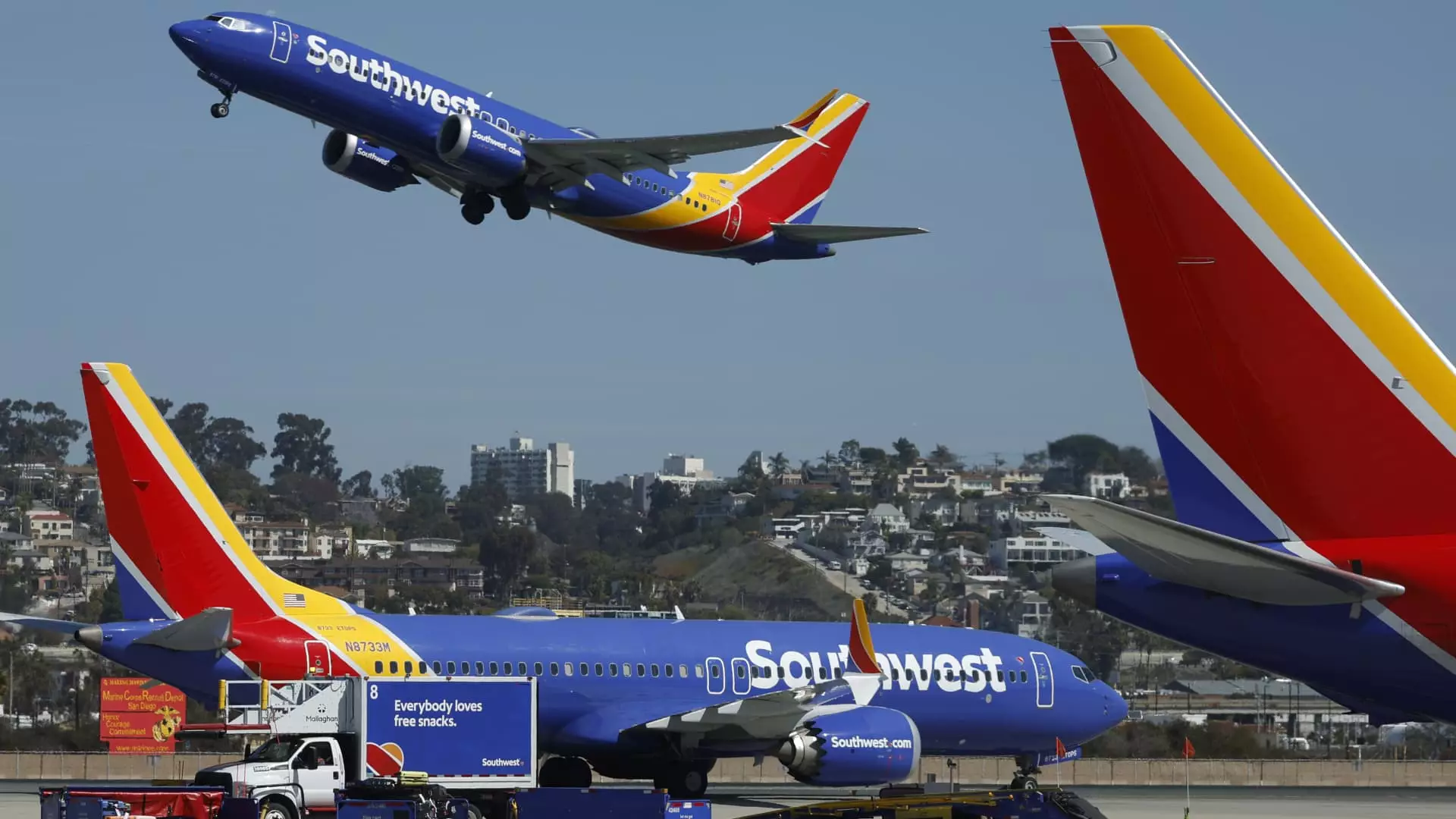Southwest Airlines, a name synonymous with affordable air travel, is at a pivotal crossroads in its evolution. CEO Bob Jordan’s recent comments at an airport industry conference reveal a strategic pivot that aims to attract high-spending customers with offerings once thought unattainable for the budget-centric carrier. This shifts from Southwest’s traditional model not only highlights an awareness of changing customer expectations but also the airline’s necessity to compete against larger rivals such as Delta, American, and United Airlines.
The crux of Jordan’s remarks was a willingness to abandon some long-standing policies—policies that had differentiated Southwest from other airlines for over five decades. By signaling openness to adding airport lounges, premium seating, and even long-haul international routes, the airline acknowledges the pressing pressure to evolve in a highly competitive market. The modern traveler, not just seeking cost efficiency but also comfort and luxury, has prompted this introspection.
The Competitive Landscape
As airfare prices in the U.S. have seen a decline, the cost competition among carriers has intensified. Southwest, once a leader in basic, no-frills air travel, finds itself at risk of losing customers who crave the additional amenities offered by full-service carriers. The introduction of low-cost basic economy tickets and bag fees has been a necessary step in aligning with industry standards. However, the concern remains—how to retain loyal customers amidst burgeoning competition.
Jordan’s assurance that they have not yet seen a significant customer migration despite these changes is encouraging. Still, the urgency is clear. With competitors steadily ramping up their offerings—like American Airlines’ expansion of lounge space in Miami—Southwest must act to prevent potential defections. The stakes are high, and finding the right balance between maintaining affordability and introducing premium services could define the airline’s future success.
Nashville as a Barometer for Change
Southwest’s stronghold in cities like Nashville serves as a barometer for what affluent customers desire from their travel experiences. The insight that Nashville travelers are eager for luxury highlights an opportunity for the airline to cater to this demographic. Jordan’s observation that Nashville customers want lounges and first-class experiences underlines a broader trend where local markets drive airline strategy.
However, addressing these desires is not trivial. Expanding amenities while retaining the airline’s core principles of low prices will require innovative thinking and significant investment. Could Southwest create a unique model that marries luxury with its budget-friendly ethos?
The Future of Long-Haul Travel
While international flights may still seem like a distant dream, Jordan’s willingness to at least consider expanding into Europe signifies a monumental shift in strategy. This aligns with a broader trend where airlines seek to tap into international markets as they recover from the pandemic’s travel restrictions. Partnering with international carriers like Icelandair and China Airlines is merely the first step.
For Southwest, moving to long-haul operations involving larger aircraft would not only mark it as a contender on the global stage but would also serve as a crucial lifeline in customer retention. The prospect of a Southwest-branded plane arriving in Europe is thrilling for both the airline and its customers, raising the stakes for direct bookings and loyalty in an increasingly interconnected world.
An Evolving Business Model
In the immediate term, the upcoming deliveries of Boeing 737 Max 7 aircraft demonstrate that Southwest is not ignoring its foundational fleet while exploring transformative changes. The delay in FAA certification illustrates the complexities of aviation regulations but also the airline’s commitment to safely modernize its offerings.
While some may criticize this slow approach toward modernization, the potential benefits of a transformed Southwest predisposed to luxury offerings could revolutionize air travel for its customers. By striking a balance between innovation and its identity as a budget carrier, Southwest Airlines may find itself not only competing in the current landscape but also shaping the future of air travel.
As it stands, the transformation of Southwest Airlines is one to watch. The future may soon hold a different narrative for a company that has long defined value over luxury, and if Jordan’s vision becomes reality, travelers may find themselves with both affordability and enhanced travel experiences.


Leave a Reply